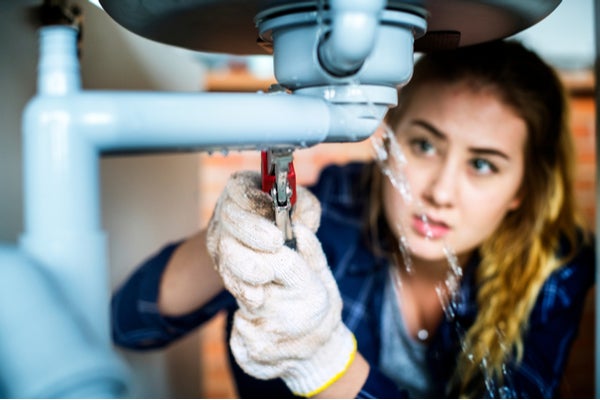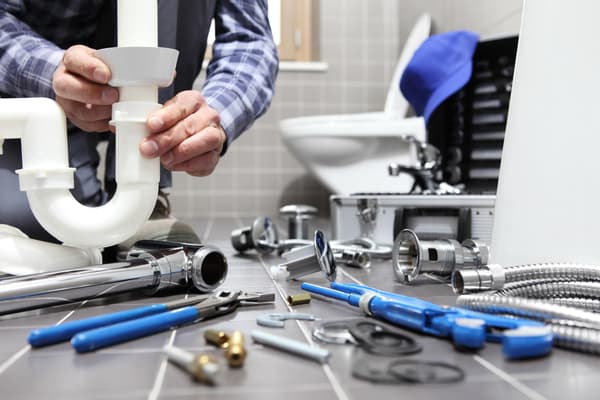Hire A Pro
Are you trying to locate selective information concerning Can Hard Water Ruin Your Appliances??

The secret to long-term home appliances, unsurprisingly, appertains upkeep. There's no hard and fast policy that can guarantee your plumbing home appliances a lengthy wear, however you can protect against unneeded damage and also fixings by preventing bad plumbing practices.
You ought to stop doing these 6 points else you'll keep calling your plumber over for minor faults.
Flushing whatever
Yes, your toilet drainpipe causes the drains, yet that does not suggest you should unload just anything down the tubes. Numerous 'flushable' materials are in fact fantastic clog starters, as an example floss. Asides keeping obvious non-flushable products like cords and plastics out of your toilet, you must likewise prevent flushing cotton buds, menstruation products, wipes, daipers as well as condoms down the commode drain.
DIYing every little thing
With plumbing, a stitch in time really does conserve 9. You can prevent a fullblown plumbing emergency by calling your plumber at the correct time.
You might have learnt a couple of plumbing hacks from your father, however you ought to understand where to draw a line and also call a professional. As an example, you may be able to repair an obstruction on your own, however you should not try to change a pipe. You could mismatch pipes or overtighten a bolt, creating even more injury and also damages than you believed. Calling a plumber is a risk-free as well as inexpensive decision.
Using too much drainpipe cleaner
Utilizing a drainpipe cleaner greater than one or two times a month is a sign that something significant is going on within your pipes. Currently, as opposed to encountering the primary problem, you opt for a quick fix; a fizzy drain cleaner. Rightfully, a drain cleaner will take care of the obstruction, yet at what expense?
The chemicals in a drain cleaner can speed up the corrosion of your pipes. Add that to whatever underlying problem is creating the blockage and you may have to a major issue on your hands.
If you experience way too many obstructions, call your emergency plumber rather than using a drain cleaner.
Pouring grease in the sink
We understand correctly dealing with oil after a hearty meal is a pain. But simply putting it down the drain can do lasting injury to your pipelines. "The fat and oil can block your drainpipe terribly sufficient to force you to call a plumber," describes Dawson. "Plumbing functions best when it's well looked after-- not abused with oil."
Not transforming your dishwasher pipes
One simple way to make certain that you use your dishwasher for years is to change the hose pipe a minimum of when in five years. This additionally obtains washing device hose pipes.
Gradually, food fragments, soap as well as grease can form clogs within your pipelines. Changing them in a timely manner will prevent any kind of presure develop that can harm the interior functions of your dishwashing machine or cleaning maker.
A reinforced steel entwined hose pipe does a fantastic work of extending your equipment's use time.
No winter months safety measures
Extreme weather conditions misbehave for your pipes, especially if they're made of steel. You ought to insulate your revealed pipelines, as well as your water container, even if you have a water heater. You ought to additionally switch off your garden hose pipe shutoff and also any other exterior water channels. These channels are outlets for cool; you pipelines can begin to freeze from outside if you don't.
How Hard Water Damages Your Plumbing and Appliances
Hard water is no stranger to most households across America. This silent invader affects 85% of homes in the United States every day, wreaking havoc on pipes, plumbing fixtures, and water-using appliances.
Should you become a victim of hard water, you must understand exactly what it is and how it affects your plumbing and appliances. This will help you determine the correct measures to put in place to fix or prevent any problems that may arise.
First off, what exactly is “hard” water?
In short, “hard water” is used to describe water that contains relatively high amounts of dissolved minerals, primarily calcium and magnesium, and a host of trace metals. When rainwater falls from the sky (usually in a pure form), it absorbs the hardness minerals from rocks and soil, which changes it from soft to hard water.
What about my plumbing and appliances?
Mineral deposits from hard water can cause buildup on tubs, shower, sinks, faucets. But that’s only a small scratch of the surface. Those minerals can gradually build up inside pipes, fixtures, water heaters, washing machines, and dishwashers. Once they accumulate in those areas, they can clog pipes and create major problems throughout your plumbing system, from reduced water flow to increased pressure on pipes and fixtures.
This limescale buildup might affect some appliances, causing them to operate less efficiently and wear down faster. And the result? Higher energy bills, more (costly) plumbing replacements and repairs, and damaged appliances.
Keep in mind that certain types of plumbing are more susceptible to clogging than others. Copper, PVC, and PEX pipes are more resistant to hard water buildup and corrosion, but they can still get clogged or completely blocked by scale deposits.
How do I know if my water is hard?
White limescale buildup on plumbing fixtures (or any of the other signs mentioned above) is usually a good sign that your water is hard. If you suspect that you have hard water, you can simply shake up a small amount of dish soap and water in a closed container. If the mixture doesn’t create a lot of suds, you probably have hard water.
The most precise method, however, is to test your water with a DIY test kit (sold online or at local home centers or hardware stores) or send a water sample from your tap to a local lab to be tested. Be sure that you understand the nature of the test, the water condition being measured, and the significance of the test results.
Another way to obtain an estimate of water hardness is to check your annual water quality report to see if your water provider has reported any instance(s) of water hardness in your water supply.
https://www.springwellwater.com/how-hard-water-damages-your-plumbing-and-appliances/

I'm very focused on Ways to Make Your Pipes Last Longer and I really hope you appreciated my page. Sharing is good. Helping others is fun. Bless you for your time. Visit again soon.
Book Now!